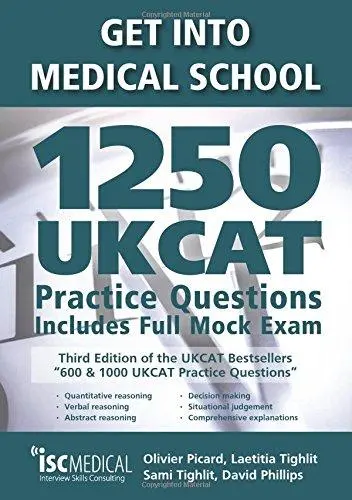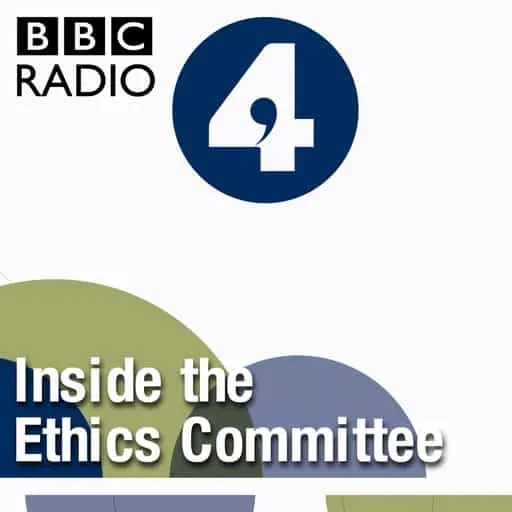There are two Medicine admissions tests: University Clinical Aptitude Test (UCAT) and the BioMedical Admissions Test (BMAT). Both are designed to examine how well suited you are to a career in Medicine. As I’m sure you’re aware, becoming a successful medic is a lot more than a strong academic record. There are other practical skills which are just as, if not more, important. This is the reason behind these admissions tests – to try to filter out those who have the appropriate problem solving, information processing and critical thinking skills. All universities require you to sit one or the other test, so we’ll now look at both…
UCAT
The UCAT is comprised of five different sections: Verbal Reasoning (VR), Decision Making (DM), Quantitative Reasoning (QR), Abstract Reasoning (AR) and the Situational Judgement Test (STJ). You might read that you can’t revise for the UCAT. Wrong! As with any exam, the way to achieve your highest score is with lots of practice. The earlier you expose yourself to the UCAT the more familiar you will become with the (rather tricky) question format, and the quicker you will find an exam technique which suits you.
1) Complete an untimed practice test
A great way to begin is to set aside 2-3 hours and complete a full (untimed) exam online. You can access these on the official UCAT website. You will no doubt find this very difficult, especially if it’s the first time you’ve seen the UCAT questions, but that’s completely normal! By throwing yourself into the deep end, you will immediately see which section you struggle with the most.
2) Focus on the sections you find most difficult

After your first practice test, look at the section you struggled with the most in more detail, using a variety of free resources online or by buying practice books (check reviews to find the best). My personal favourite was the ‘ISC Medical 1250’ book, but there are so many to choose from. Keep in mind that lots of the practice questions in these sorts of books are actually harder than the real exam. So don’t get discouraged if you’re finding it tricky. The section which I found by far the most difficult (Abstract Reasoning) at the start of my preparation, was actually my top score in the real exam! Although these are ‘aptitude’ tests, it doesn’t mean that you can’t practice and get yourself familiar with the question format. As with any exam, there are patterns in question style which you can expect to come up every year. By figuring this out, you can put yourself ahead of the pack.
3) Complete a timed practice test (and repeat stage 2!)
After you’ve tackled the sections you found most difficult, try another free online (but this time, timed) practice test. Most people find that, after some practice, the questions are quite doable but that the real issue is with timing. This was the case for me, so I made time management my main priority. I split up the allocated time for each section into the number of questions so I knew how long each question should take. If I was spending too long on a question, I would give it my best guess, flag it for review and move on. Don’t let a couple of difficult questions (you can guarantee that you’ll come across many!) get you down. Flagging answers is a great way to make sure that you get through all of the questions, so that you can pick up those easy marks. Learning how to prioritise is a vital skill that you’ll need to develop as a doctor, in order to triage your patients and allocate your time to maximum effect. In addition to general exam technique, I would also strongly suggest you familiarize yourself with the (highly awkward!) on-screen calculator. You will definitely save some invaluable seconds in the quantitative reasoning section.
The majority of applicants like to get the UCAT finished with in the summer. This is so they have more time to focus on their IB/preparing for the BMAT. Find out what the cut-offs are for your short-list of universities and what the average scores are for successful applications. You can make strategic decisions based on your own score to make sure you are targeting the correct universities. If you don’t do as well as you hoped, you can’t re-sit the UCAT until the following year. But, fortunately there are universities that do not consider UCAT at all!
BMAT
The other Medicine admissions test, the BMAT, is a written exam, usually taken at your school.
The BMAT is split into 3 sections. In section 1, similar to the UCAT, the BMAT addresses critical thinking and evaluative skills. Section 2 is much more academic in focus, alternating between questions in chemistry, biology, physics and mathematics. Section 3 looks at your ability to communicate a cohesive argument in the form of a written essay.
Section 1
Any preparation you have done for the UCAT will be of great use in preparing for section 1. With a similar style of questions, you can expect logic puzzles, abstract thinking, argument evaluation and data analysis. As with the UCAT, sitting a past paper (you can find them HERE) will alert you to where you should start your focused practice.
Section 2
Section 2 draws upon GCSE knowledge of the sciences and mathematics. However, depending on your specification (or if you didn’t take GCSEs) there may be some gaps in your knowledge. A very useful free resource which covers everything you need to know can be found on the BMAT official website. Many people (myself included) don’t take Physics for IB, and find those questions the most difficult. I recommend starting section 2 preparation by going over the specifications for physics in the online guide. Don’t be scared to ask a teacher at school if you’re still not confident with a topic. Do not abandon physics completely, as there are some very easy calculation questions if you just know the basics! Getting quick at mental maths is another way to save time in section 2, as you don’t have a calculator like with the UCAT. Many people agree that section 2 offers the best improvement in score over a short period of time, so if you’re running a little late with revision start with section 2!
Section 3

The final section presents you with three different statements. It asks you to choose one and write an essay explaining to what extent you agree with it. This is my favourite section, as the essay is really open-ended. Of the three assertions, one is usually quite vague and philosophical in nature (IB students will recognise ToK elements!). Another can be more focused on ethics in medicine, and the last about scientific advancement. Listen to documentaries, podcasts and read books about ethics and general issues in medicine. ‘Inside the Ethics Committee’ (BBC Radio 4) was a personal favourite podcast of mine! None of this preparation will be wasted, as similar topics could easily come up at interview.
That’s all for today’s blog on Medicine admissions tests. But check out our next blog for even more information about applying for Medicine in the UK. Next week I’ll be helping you write a tip top personal statement for med school applications!
Today’s blog post was written by Erin Lynch, one of our tutors who scored 45 points in her IB Diploma. Erin is a prospective medical student at Cambridge University, but she also received offers from Exeter, Edinburgh and UEA.
Check out part 3 – write a killer med school personal statement!




